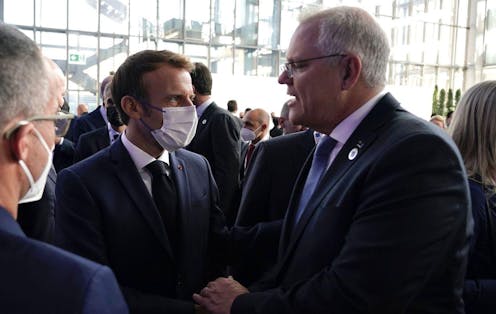Australia has not just had a 'diplomacy fail' – it has been devaluing the profession for decades
- Written by Melissa Conley Tyler, Honorary Fellow, Asia Institute, The University of Melbourne
 Prime Minister's Office
Prime Minister's OfficeWe are seeing an unusual level of discussion about Australian diplomacy.
There’s been harsh criticism – and some degree of embarrassment – surrounding what has been described been as a “diplomacy fail” in managing relations with France.
The head of the Australian Strategic Policy Institute, Peter...

















